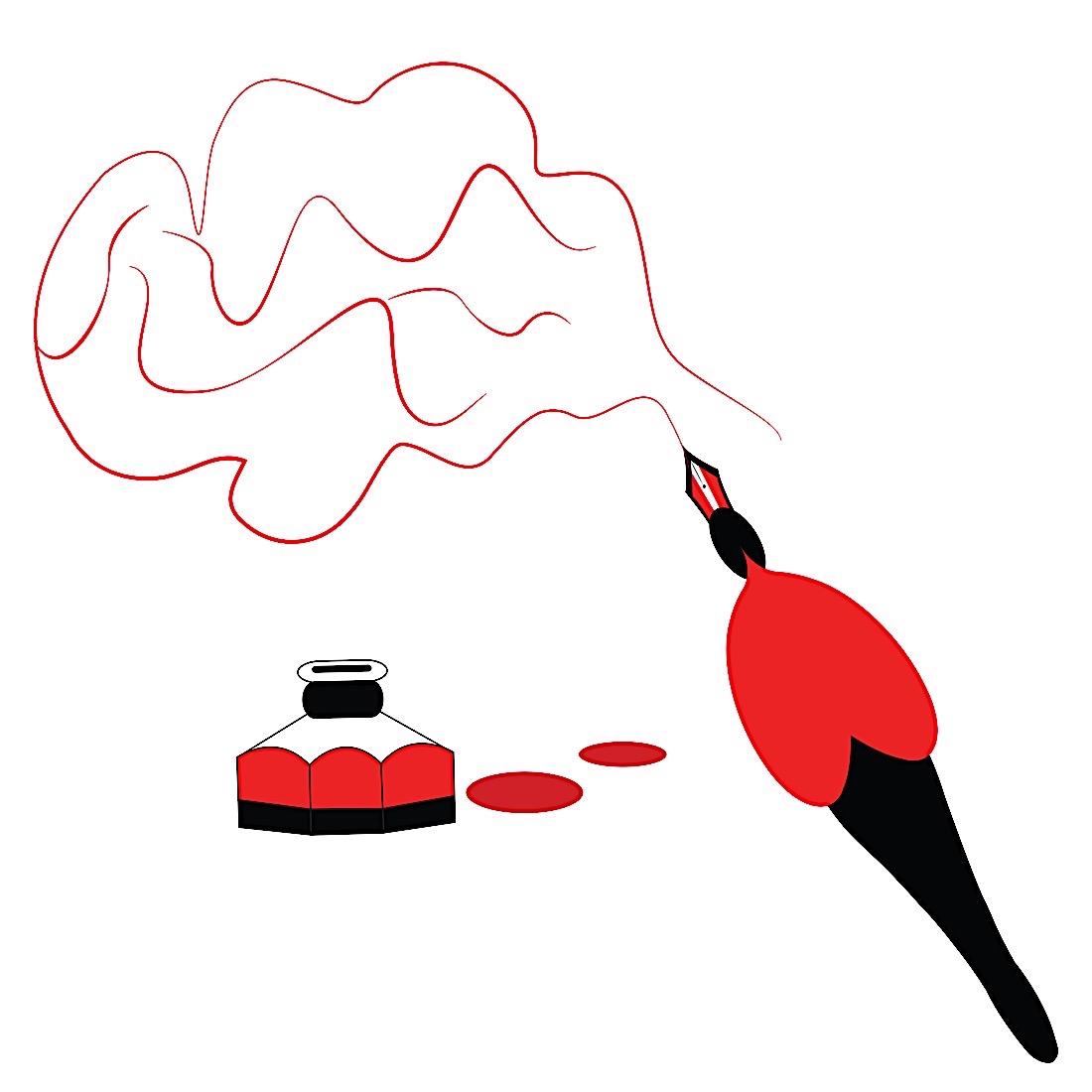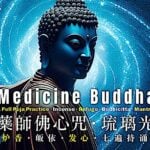The Power of Mindful Writing and Combining Meditation with Journaling for Self-Discovery

In a world that constantly demands our attention, it’s easy to feel overwhelmed or disconnected from ourselves. But what if there was a way to quiet the noise, focus your thoughts, and truly tap into your inner wisdom? The answer might lie in mindful writing – a practice that combines the art of journaling with the clarity of meditation, fostering a deeper understanding of who you are and what you truly need. In this article, we’ll explore the power of mindful writing, how meditation enhances this process, and how you can use these tools to embark on a journey of self-discovery.
By Robert Everett
Bio below.

What is Mindful Writing?
At its core, mindful writing is an intentional and focused approach to journaling. It’s different from regular writing because it emphasizes presence, awareness, and self-reflection. Instead of just putting words on a page, mindful writing encourages you to tune into the present moment and explore your thoughts and emotions without judgment.
When you practice mindful writing, you allow yourself the freedom to express your feelings openly. Whether you’re writing about a challenging situation, your dreams, or your everyday experiences, the goal is to connect with yourself on a deeper level. The act of writing becomes a form of self-care, offering mental clarity and emotional release.
The benefits of mindful writing are profound. It helps improve mental focus, reduce stress, and enhance emotional expression. Writing with mindfulness can also encourage problem-solving and creativity by making space for new ideas and perspectives to emerge.

The Role of Meditation in Self-Discovery
Before diving into mindful writing, it’s essential to understand the power of meditation. Meditation is often seen as a tool for calming the mind, but its true potential lies in its ability to foster deep self-awareness. When you meditate, you focus on your breath, body, or a particular thought to center your attention. This process quiets the mental chatter, helping you connect more fully with your inner self.
The connection between meditation and self-discovery is clear: meditation encourages introspection, helping you gain insight into your thoughts, emotions, and patterns of behavior. It allows you to observe your feelings without getting caught up in them. Through this practice, you can start to notice the underlying beliefs and stories that shape your worldview. Over time, this increased awareness can lead to a deeper understanding of who you are and what you need to feel fulfilled.
By regularly practicing meditation, you can cultivate a sense of calm, clarity, and emotional balance that makes journaling more meaningful and insightful.

The Synergy: Combining Meditation with Journaling
So, how can you combine meditation with journaling for a powerful self-discovery practice? The magic happens when you use meditation to prepare your mind for deeper reflection. By meditating before journaling, you create a calm mental state that allows your thoughts to flow freely onto the page.
Here’s how it works: before you begin journaling, take a few moments to center yourself with a short meditation session. Focus on your breath or practice a body scan to release any tension you may be holding. You could even use a guided meditation to set an intention for your journaling session, such as exploring a specific feeling or situation in your life.
Once your mind feels calm and clear, begin writing. The act of journaling after meditation allows you to process your thoughts more deeply, explore hidden emotions, and gain clarity on whatever is on your mind. It’s almost as though you’re writing from a place of inner peace, where distractions fade away, and your true self can emerge.
There are different types of meditation practices you can incorporate before journaling. Some people find that focusing on their breath helps them stay grounded, while others may use mindfulness techniques, such as paying attention to the sensations in their body. Whatever method you choose, the key is to create a space of stillness that allows you to engage more authentically with your writing.
Benefits of Combining Meditation and Journaling for Self-Discovery
When meditation and journaling are combined, the results can be transformative. Here are some of the most notable benefits:
- Unlocking Hidden Thoughts and Emotions
Meditation helps you clear your mind and become more attuned to your emotions, while journaling offers a way to articulate these feelings. Together, they create a powerful tool for uncovering hidden thoughts and emotions that you might not otherwise be aware of. Whether you’re dealing with stress, sadness, or joy, writing after meditation can bring these emotions to the surface and help you process them in a healthy way.
- Gaining a Deeper Understanding of Yourself
Mindful writing and meditation work hand in hand to give you insights into your true self. By regularly reflecting on your thoughts and emotions, you can uncover patterns and beliefs that influence your decisions, relationships, and well-being. This newfound self-awareness can empower you to make conscious changes in your life and align with your deeper values.
- Developing Emotional Resilience
Regularly practicing mindful writing can help you build emotional resilience. By acknowledging and processing your feelings, you create a safe space to confront difficult emotions and learn from them. Over time, this can make you more adaptable to challenges, as you begin to understand your emotional triggers and reactions.
- Enhancing Creativity and Problem-Solving
Mindful journaling isn’t just for self-exploration – it can also spark creativity and boost problem-solving skills. By writing without judgment or expectations, you free your mind to explore new ideas and perspectives. Whether you’re brainstorming solutions to a problem or simply exploring your dreams, mindful writing can open the door to creative breakthroughs and fresh insights.
Practical Tips for Starting Your Own Mindful Writing Practice
Ready to dive into mindful writing and meditation for self-discovery? Here are a few practical tips to get you started:
- Set Clear Intentions
Before you begin your journaling practice, take a moment to set an intention. This could be as simple as wanting to explore your feelings, reflect on a recent experience, or gain clarity on a decision you’re facing. Setting an intention helps guide your meditation and journaling session, making it more focused and meaningful.
- Create a Peaceful Environment
Both meditation and journaling require a calm and quiet space. Find a place where you can sit comfortably without distractions. This could be a cozy corner of your home, a park, or anywhere that feels peaceful to you. The goal is to create an environment that supports mindfulness and reflection.
- Try Guided Meditation or Breathing Exercises
If you’re new to meditation, you might find guided sessions or simple breathing exercises helpful. Try taking a few deep breaths or using a guided meditation app to help you stay focused and calm. The more you practice, the easier it will become to meditate before writing.
- Use Journaling Prompts
If you’re unsure where to start with your writing, try using journaling prompts. Here are a few examples:
- Gratitude Journaling: Write about three things you’re grateful for today.
- Stream of Consciousness: Let your thoughts flow freely onto the page without worrying about grammar or structure.
- Self-Reflection: What is something you’re currently struggling with? How can you approach it with compassion?
- Be Consistent
Consistency is key to reaping the benefits of mindful writing and meditation. Set aside a regular time each day or week to practice both. It doesn’t have to be long – even 10-15 minutes of meditation followed by journaling can lead to profound insights.
Conclusion
Combining meditation with mindful writing is a powerful way to embark on a journey of self-discovery. Meditation calms the mind and increases awareness, while mindful writing offers a space to process thoughts and emotions. Together, these practices can help you unlock hidden insights, build emotional resilience, and discover deeper layers of yourself. Whether you’re looking to find clarity, enhance creativity, or simply understand yourself better, this practice can be a transformative tool in your personal growth. So, why not give it a try? Take a moment to meditate, pick up your journal, and let the magic of mindful writing guide you toward self-discovery.
Author Bio: Robert Everett
Robert Everett is a writing professional at essay writing service Edubirdie, where he combines his expertise in education with a deep commitment to personal growth. With over a decade of experience in the field, Robert is passionate about helping students succeed through innovative writing services. At Edubirdie, he plays a key role in shaping educational strategies, always striving to enhance the learning experience. Outside of work, Robert is dedicated to continuous self-improvement, often sharing valuable insights and tips with his team and clients. His approach to education is not only rooted in academic excellence, but also in fostering personal development and mindfulness in everything he does.
More articles by this author
Search
Latest Features
Please support the "Spread the Dharma" mission as one of our heroic Dharma Supporting Members, or with a one-time donation.
Please Help Support the “Spread the Dharma” Mission!

Be a part of the noble mission as a supporting member or a patron, or a volunteer contributor of content.
The power of Dharma to help sentient beings, in part, lies in ensuring access to Buddha’s precious Dharma — the mission of Buddha Weekly. We can’t do it without you!
A non-profit association since 2007, Buddha Weekly published many feature articles, videos, and, podcasts. Please consider supporting the mission to preserve and “Spread the Dharma." Your support as either a patron or a supporting member helps defray the high costs of producing quality Dharma content. Thank you! Learn more here, or become one of our super karma heroes on Patreon.
Robert Everett
Author | Buddha Weekly
10 years after he became a Buddhist, Robert Everett is still a beginner, discovering new depths of the philosophy every day. He finds various ways to implement Buddhist principles in his lifestyle and his work at Edubirdie. Robert always shares his own experience and educational tips. You can follow him on Twitter (@edu_birdie) for daily inspiration and educational tips.













